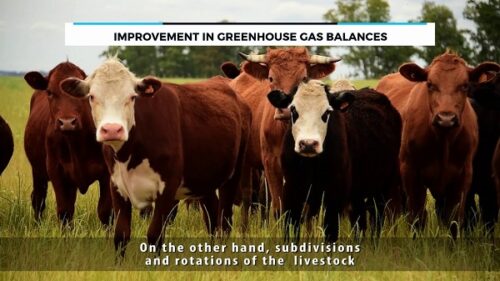2 Nov 2022
Uruguay has assumed commitments at the international level, which propose a reduction in greenhouse gas emissions, specifically in meat production.

Gianni Motta, a technician of the National Meat Institute, recalled that Uruguay made a commitment in 2015 to lower its greenhouse gas emissions.
“Currently, there is news that there are shipments of carbon neutral meat being made, and that is where consumer demand lies,” noted Motta.
He explained that the requirement for carbon neutral beef initially came from Europe and Japan, which “are the consumers who are demanding to know where the meat comes from, what the environmental impact is.”
Motta said that to advance beef producers must know how to measure their emissions and environmental impact and nowadays, in Uruguay, that the emission data in the livestock sector are calculated by the Ministry of Livestock, Agriculture and Fisheries. The data is published on the official website and so information exists at national level.
Motta noted that there were ways of reducing emissions such as adjusting animal feed to reduce gases. He also emphasised that taking care of natural pasture by grazing cattle would help sequester carbon.
“If carbon can also be found in the soil, there is an opportunity to lower the total emission of livestock,” stated Motta.
He recalled that “methane is biogenic and cycles naturally in the environment, so in reality, in the long term, we could expect our livestock, under certain conditions, to be climatically neutral.”

使用條款 | 隱私政策 | APLF 可持續發展